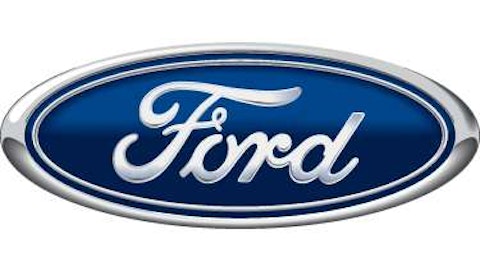If you listen to political pundits, watch many speeches by politicians, or even engage in the time-honored tradition of arguing with distant family members at Thanksgiving, you probably hear a lot of talk about how one policy-maker or another is “destroying the value of the dollar” and “debauching the currency.” Comparisons to Zimbabwe and the Weimar Republic are usually thrown around.

It seems intuitive that a strong dollar would be a good thing, but it may surprise you to learn that that isn’t necessarily true. The economics of exchange rates are very nuanced, but in some cases, a weak dollar can greatly benefit the American economy, while a strong dollar can put American businesses in a tough position.
Land of the falling yen
In December of last year, Japan elected a new prime minister, who has publicly advocated for intentionally weakening Japan’s currency. In the five years prior to his election, the yen had appreciated about 26% against the dollar, which meant that all the Japanese goods Americans import began to cost us more and more. But since his election, the yen has erased almost half those gains.
Suddenly, Japanese goods are cheaper for Americans. But the cost of goods inside Japan has remained largely the same. So, flipped around, this means Japanese manufacturers have three basic options.
1. They can produce the same product as before, at the same cost, and sell it in America at the same dollar price as before. Now that dollars are worth more yen, however, the Japanese manufacturer is able to earn a higher yen-based profit, without doing anything differently.
2. They can produce the same product as before, at the same cost, and sell it in America at a lower dollar price, using the higher exchange rate to keep profit margins the same as before.
3. The third option is create a better product that costs more to make, and sell it in America at the same price as before, again using the higher exchange rate to keep profit margins the same.
The latter two options allow the manufacturer to take market share from American competitors, either by waging a price war, or by offering costly extra features — either way challenges competitors to crush their profit margins to keep up.
The winners and the losers
As noted in a recent Businessweek article, the third option is what Toyota Motor Corporation (ADR) (NYSE:TM) is likely to do. This option is the subtlest of the three, as it allows the company to compete on quality instead of just price, making American rivals like General Motors Company (NYSE:GM) and Ford Motor Company (NYSE:F) look worse by comparison. According to Businessweek, Detroit automakers estimate that Toyota gains a $5,700 per-car advantage purely from the higher exchange rate.
The advantage has American carmakers worried, but it doesn’t seem to be translating into increased sales for Toyota Motor Corporation (ADR) (NYSE:TM) yet. February saw just a 4.3% increase in sales from last year, while Ford Motor Company (NYSE:F) showed 9% gains, and GM increased 7%. Still, the currency gains likely haven’t had time yet to effect corporate policy for any of the companies. Toyota Motor Corporation (ADR) (NYSE:TM) recently raised its profit guidance for the fiscal year ending March 31 by about 10%, and it is likely that the 2013 will be a strong year as well.
Meanwhile, on the other side of the currency trade, AFLAC Incorporated (NYSE:AFL) is another American company that benefits from a weaker dollar, albeit for different reasons. The company is one of the largest supplemental insurers in the United States, but is the largest insurance company overall in Japan, where it gets about 70% of its sales. All those yen-based policies ultimately get converted back into dollars, and fewer of them when the dollar is strong. It’s therefore no coincidence that AFLAC Incorporated (NYSE:AFL)’s stock has fallen about 5% since the yen started falling, despite a strong showing from the rest of the S&P 500.
The Foolish bottom line
It’s important to keep aware of where the companies you invest in do business, and where their competitors are based. The consequences of currency fluctuations can be very complex, and a strong dollar isn’t necessarily a good thing, as it can force a company’s products to be more or less expensive, and thus more or less competitive. It can also cost international companies profits when they repatriate global revenues, giving them an incentive to keep that money abroad until the exchange rate improves.
The article Is a Strong Dollar Necessarily a Good Thing? originally appeared on Fool.com and is written by Jacob Roche.
Fool contributor Jacob Roche has no position in any stocks mentioned. The Motley Fool recommends Aflac, Ford, and General Motors. The Motley Fool owns shares of Ford.
Copyright © 1995 – 2013 The Motley Fool, LLC. All rights reserved. The Motley Fool has a disclosure policy.
